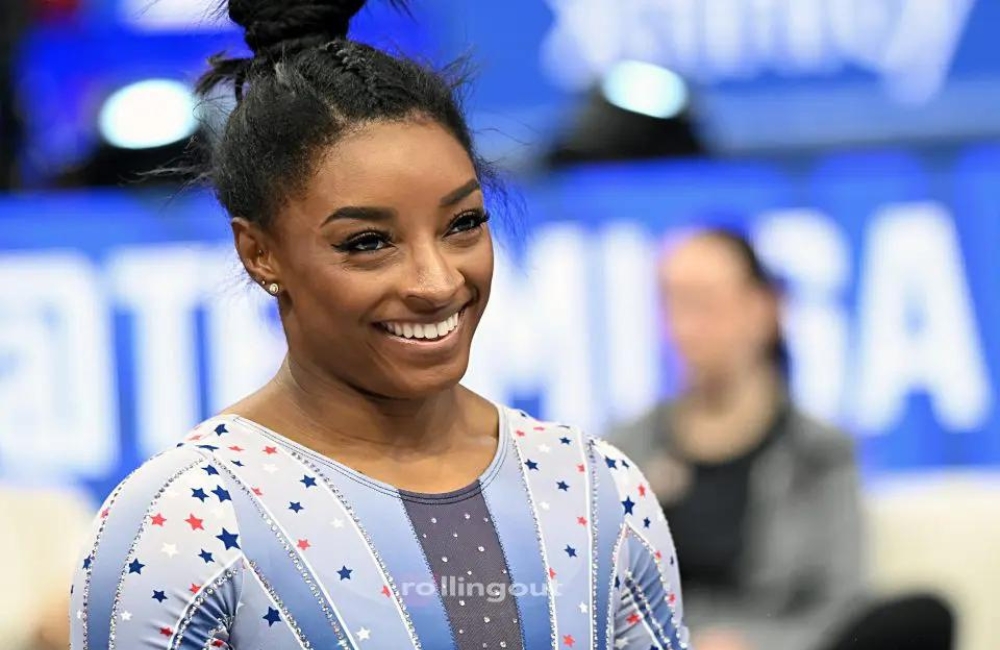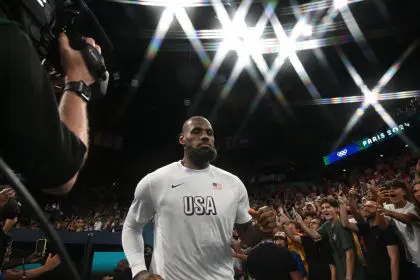The sports world is no stranger to heated debates about greatness, and the recent selection of Caitlin Clark as Time magazine’s Athlete of the Year has sparked a significant discussion among fans and analysts alike. While Clark’s achievements are impressive, many believe that Simone Biles, the iconic gymnast and Olympic gold medalist, deserved the honor more. This controversy raises questions about race, representation and the criteria used to define athletic excellence.
Caitlin Clark’s remarkable journey
Clark’s journey to becoming the 2024 Athlete of the Year is nothing short of extraordinary. In her final season at the University of Iowa, she led the Hawkeyes to a second consecutive national championship appearance and became the NCAA’s all-time leading scorer. Her transition to the WNBA was equally groundbreaking; as the No. 1 draft pick, she made history as the first rookie to record a triple-double and was named Rookie of the Year.
Sports Illustrated highlighted her unprecedented impact, noting that no WNBA point guard, rookie or otherwise, has ever scored and assisted as much in a season. Despite her accolades, Clark’s selection as Athlete of the Year faced backlash, with critics arguing that she lacked championship credentials.
Simone Biles: A legacy of excellence
On the other hand, Biles has built a legacy that is hard to ignore. At just 27 years old, she dominated the Paris Olympics, securing three gold medals and one silver. With a total of 11 Olympic medals — seven of them gold — and 40 medals across world championships, she holds the record for the most medals in gymnastics history, male or female.
Financially, Biles is also a powerhouse, ranking as the ninth-highest-paid female athlete in 2024 with earnings of $11.1 million through sponsorships and athletic achievements. Her representation of the United States on the global stage has been nothing short of remarkable.
The controversy unfolds
The debate intensified on social media, with many fans expressing outrage over Clark’s selection. Comments such as, “By winning nothing? White Privilege at its height,” reflect a sentiment that race may have played a role in the decision. Critics argue that Biles, who was named Athlete of the Year in 2021 for her mental health advocacy and athletic prowess, deserved the title this year based on her accomplishments.
Supporters of Biles point to her unparalleled achievements and argue that her contributions to the sport go beyond medals. In contrast, some fans defend Clark, stating that her impact on the WNBA and her ability to change the dynamics of a team sport in a short time are equally commendable.
A broader conversation
This debate is not just about two athletes; it reflects broader conversations about recognition and representation in sports. Clark herself acknowledged the privilege that comes with being a white athlete in a league where many successful players are Black. She also emphasized the importance of elevating Black women in sports and recognizing their contributions.
Celebrating excellence in sports
As the debate continues, it is essential to recognize that both Clark and Biles have transcended their respective sports, inspiring millions and pushing the boundaries of what is possible in women’s athletics. Whether you support Clark or Biles, one thing is clear: both athletes have made significant contributions to their sports and have become role models for future generations.
Ultimately, this controversy serves as a reminder of the complexities surrounding recognition in sports and the ongoing need for equitable representation. As fans, we should celebrate the achievements of all athletes while advocating for a more inclusive and fair recognition process.















